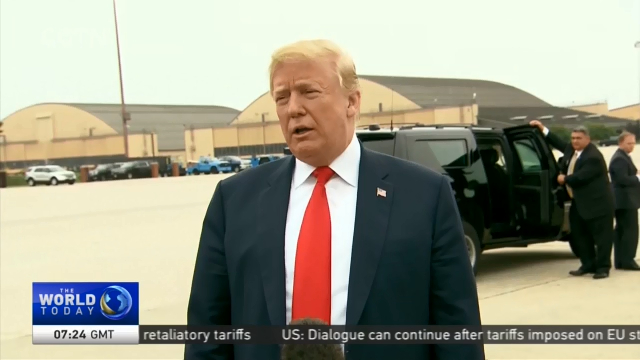
15:46, 01-Jun-2018
Korean Peninsula Diplomacy: US confident on plans for Trump-Kim summit
02:17

US Secretary of State Mike Pompeo says the plans for a summit between Donald Trump and Kim Jong Un are "moving in the right direction." The optimism comes after two days of meetings in New York with DPRK official Kim Yong Chol. But it's still not clear if the planned June 12th summit will truly go ahead. CGTN's William Denselow reports from New York.
This was an exercise in damage control, to try and get the summit between U.S. President Donald Trump and DPRK leader Kim Jong Un back on track. General Kim Yong Chol is the highest ranking DPRK official to hold talks in the U.S. in 18 years. Afterwards U.S. Secretary of State Mike Pompeo - the President's point-person on DPRK matters - struck a note of optimism.
MIKE POMPEO, US SECRETARY OF STATE "Through these series of meetings, I'm confident we're moving in the right direction. Today, Vice Chairman Kim and I discussed how our countries could come together and take advantage of the unique opportunity that our two leaders have created through their visions of the future that they have so clearly articulated."
To salvage the summit meant a dinner meeting on Wednesday followed by two and a half hours of talks on Thursday. Pompeo called them "substantive" discussions, at which both sides discussed their "priorities."
WILLIAM DENSELOW, NEW YORK But while Pompeo noted that things are "moving in the right direction," there's still no word on whether the planned June 12th Summit in Singapore will actually take place. News on that may come on Friday, when the focus shifts to Washington. The DPRK delegation is expected in DC for a potential meeting with President Trump and to present him with an important document.
DONALD TRUMP, US PRESIDENT "I believe they'll be coming down to Washington on Friday, and a letter is going to be delivered to me from Kim Jong Un. So, I look forward to seeing what's in the letter, but it's very important to them. So, they'll be probably coming down to Washington, D.C., on Friday."
There may have been "real progress" at the talks. But the U.S. demand for the complete denuclearization of the Korean peninsula - missiles and all - could still be a significant stumbling block. William Denselow, CGTN, New York.

SITEMAP
Copyright © 2018 CGTN. Beijing ICP prepared NO.16065310-3
Copyright © 2018 CGTN. Beijing ICP prepared NO.16065310-3